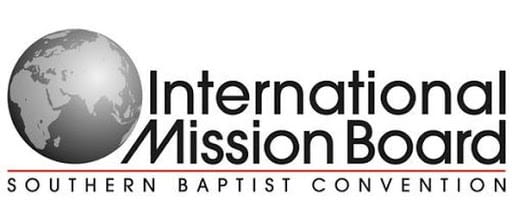Beth Moore’s recent announcement that she no longer considers herself a “Southern Baptist” prompted several of my own personal reflections. I’ve associated with the Southern Baptist Convention (SBC) for over 30 years. But now I too no longer belong to an SBC church. I also worked with the International Mission Board (IMB) for over a decade. But I left the IMB as well.
I don’t write this post to tear down the IMB or SBC. My hope in sharing is two-fold. First, I hope to add to the momentum that leads to reform within the SBC and especially the IMB. Second, I pray that my comments serve as a warning to other mission organizations that might foster a certain culture and practices that undermine their ministry.
“Don’t hold that against me.”
Not having grown up in church, I’m not “culturally SBC.” Yet, I became a Christian in an SBC church as a teenager. My wife and I both worked on church staffs. In some ways, our serving with the IMB brought us into the inner sanctum of SBC life. Why do I say that? At a practical level, it’s the IMB that unites the SBC more than anything else. SBC churches love supporting missions and I love them for it.

Over the last decade, a troubling tendency emerged in my speech when meeting others. When introducing myself, I’d let them know I worked with the IMB but then add, “But don’t hold that against me.” I had grown well aware of the stigma often attached to IMB/SBC workers. The reputation often included sentiments suggesting that IMB workers are merely concerned with numbers, rapidity, tend to be close-minded, throw money around to get what they want, and often have a my-way-or-the-highway approach to partnerships.
Before going further, let me say that my concern is with the pervasive culture that runs through much of the IMB and SBC. Many of my dearest friends and people for whom I continue to have respect belong to the SBC. I don’t “condemn” all leaders within the SBC. For example, I have the utmost regard for Zane Pratt, a Vice-President for Global Training in the IMB. Likewise, my friend, Bruce Ashford, is an amazing man of God and scholar at SEBTS. And I am encouraged by current leaders like J.D. Greer.
In short, I don’t write this post to criticize people who belong to the SBC. Rather, my heart breaks because of the pervasive dishealth within the IMB/SBC and its impact on the church’s mission.
Racism and Sexism within the IMB?
An article cannot give a full and just depiction of SBC culture. This post merely looks at troubling aspects within the IMB’s subculture.
First things first…. let’s discuss key issues floating around social media. Did I see racism within the IMB? No, nothing was blatant. Although the people serving with the IMB are overwhelmingly white, this reflects the demographics of the SBC (which is 85% Caucasian).
Did I see sexism within the IMB? I would say, yes, but with a qualification. One must keep in mind that the doctrinal position of the SBC is that women should not serve as pastors. Therefore, some would interpret that interpretation of the Bible as sexist itself. But I say not necessarily. A sincere effort to interpret scripture is not inherently sexist.
I will say, however, the stance against women pastors does create several tensions.
Many IMB personnel are nervous about putting women in certain positions of leadership. If women shouldn’t lead churches, they say, then women should not be doing a lot of leading and training of men who lead churches. In practice, IMB field leaders often spoke from both sides of their mouths: “Women should prioritize their families, but at the same time should facilitate church planting movements.” This makes many women missionaries feel torn, left with the sense they can’t meet any expectations placed on them.
Also, one hears a common habit of speech from upper leaders whereby men are called “missionaries,” but married women are often referred to as “missionary wives.” You will never hear the reverse.
In short, the view about women pastors becomes the justification for any number of “guards” against women leading on the mission field.
The Toxicity of IMB Culture
Here are 3 broad toxic features of the IMB’s subculture that need reform.
1. Authoritarianism
Keep in mind that the IMB is shaped by Southern culture. Honor and shame are infused within the American South. Southern culture cannot be separated from the SBC. This entails high regard for authority. Within the IMB, this value then gets baptized with various biblical texts. Challenging authorities, norms, or traditions becomes tantamount to sin.
Funding is another important mechanism that intensifies authoritarianism within the IMB. Its missionaries are fully funded due to the generous giving of SBC churches to the Lottie Moon fund and the Cooperative Program. As a result, the IMB holds all the purse strings since missionaries don’t raise funds directly from individuals. (In fact, missionaries are forbidden from raising funds for themselves.)
This absolute power of the purse has the consequence that IMB leaders feel they can or should dictate what adult personnel do in nearly every sphere of life.
Overreaching Leadership

Let’s begin with a very trivial example just to illustrate the overreach of leadership. Suppose one Friday evening my wife and I decided we wanted to have a getaway in a local hotel within our city. Even if we left our home at 6 pm on Friday, then return Saturday by 8 am, not only did we have to give a detailed account of our location and plans, but we were told the hotel stay would count as an official vacation day since we were not sleeping “in our own bed” (even though we were sleeping just a few miles from our home).
Admittedly, this is an insignificant rule in the big picture. I recount it merely as one example of the myriad ways the IMB inserts itself into the details of grown adults’ lives.
Taking from a Sister Organization
Here is a more serious example.
For a time, I worked at an international school as a way of securing a visa. The IMB has a policy that money gained from other employment must be turned over to the IMB. The school for which I worked is overtly Christian and is a longtime partner of the IMB, providing discounts for IMB families for many years.
The school, like other Christian organizations, struggled financially. I did not want to take from our sister organization merely to fill the pocket of the IMB, the most well-funded of Christian mission agencies. Yet, the IMB’s legal counsel ignored my concern saying that taking school’s money would help the IMB reach more people for Christ.
So, rather than take from the Christian poor to give to the Christian rich, I told the school not to pay me. This upset IMB lawyers, so I had them pay me only the amount that they charged the IMB for my kids to attend their school. In this way, the school got all the money back. My decision infuriated the lawyers and my immediate supervisor had to negotiate on behalf so that I would not get a formal censure (a precursor to getting fired).
Naturally, there are various consequences of the IMB’s over control. It’s something of a joke among many IMB missionaries that one quick way to get fired is to go to member care. One fears saying something that is not in step with the company ethos. Sharing one’s struggles could make leadership deem you unfit for the field.
2. Culture of Secrecy
A culture of secrecy infects the IMB every bit as much as it does local SBC churches. (The latter is evident in the way SBC churches and seminaries have handled abuse scandals.) The vast political machine of the IMB (and SBC) creates a hush-hush ethos.

Just last year, we received an email saying the following,
“I am writing you because our records indicate that your time on the field could have placed you or your child in physical proximity to the teacher who engaged in the alleged abuse.”
I responded in an email,
“In order for us to probe our children, we will need more specific information. How might our kids have met or interacted with the teacher?”
To this, I received this reply:
“Unfortunately, we are unable to give any other identifying information about this teacher. I understand that can be a frustrating answer and I wish I could give more information.”
Finally, I replied:
“Well, without more information, you cannot expect to be helpful to parents or their kids. Children need help focusing their memory. The IMB’s perpetual proneness to secrecy will inevitability sink it (just as we’re seeing it do among many SBC churches).
While you might not like this comment, the lack of willingness to give *some* sort of additional information suggests that the Company would prefer not to uncover more incidents and thus not fully address the problem and help children. If the Company really saw this as a priority, the company would be willing to push the line with respect to releasing some sort of additional information.
In short, such a general email covering such a broad period is useless and only leads to distress.”
I have cut and pasted the key quotes from the exchange. You can decide what lessons the IMB is actually drawing from the instances of abuse being exposed among SBC churches.
UPDATE:
Since posting this, a friend informed me that the IMB required all missionaries separated from service in 2015 had to sign an NDA (Non-Disclosure Agreement) before the IMB released any retirement money to them. To give context, the IMB had asked missionaries to voluntarily retire or leave (through VRI & HRO programs) to help the organization survive financially. Requiring an NDA is an inexcusable abuse of the IMB’s power of the purse. There is no need to treat missionaries this way who were either trying to help the IMB by leaving the field or retiring before they might otherwise get laid off.
3. Fixation of Numbers
Finally, numbers drive everything the IMB does. It is well known that the leading advocates for Church Planting Movements (CPMs) have been IMB personal, such as David Garrison, Ying Kai, and the late Steve Smith. This drive for high numbers comes from a sincere desire to reach as many people as possible for Christ. The negative effects of this fixation on numbers are staggering and diverse.
“Faith Estimates”
Let’s start with a simple example. In our initial IMB training, regional leaders required people to give “faith estimates” for how many churches God would plant through us during our first term with the company. For most people, their first term is filled with language learning and culture acquisition. The leaders celebrated the faith of those in the group who spoke of hundreds of churches expected to pop up through them in the next 2-3 years.
By contrast, my wife and I had lived in China previously and knew what we were getting into. We were the last to speak and said we hoped 3 people would come to faith through us during our first term; the leaders barely masked their disappointment with our “lack of faith.”
Manipulating the Numbers
Reports of high numbers are a major tool for fundraising. In our region, so-called CPMs were a significant source for numbers (of new churches, new believers, etc.). When the numbers suddenly dropped off (for reasons I won’t get into now), over 90% of those “new churches” numbers vanished. Leaders began looking for other numbers to highlight.
One day, I looked at the company’s website that was promoting the theological education we were doing. The page said we trained an astronomically high number of pastors each year. In fact, the number listed was ten times the actual figure. This perplexed me since I personally had taught every student since the founding of the school.
I eventually realized how IMB leaders had calculated those numbers. Every time a single student would take a class, he or she would be counted multiple times. So, a student who took 10 classes was being listed as “10 pastors” who were being trained.
Nothing was changed when I raised these concerns to superiors. The people who read this page were US churches and donors, who would not discern that these “many thousands” of pastors actually were the fruit of peculiar (I would say manipulative) counting.
Reaching People on Paper Only
While I could offer additional examples, I’ll conclude with one more.
Several years back, the IMB conducted a campaign to get churches excited about missions and therefore fund the effort. The campaign encouraged local SBC churches to adopt Unengaged, Unreached People Groups (UUPGs). While many people are familiar with Unreached People Groups (UPGs), note the extra U. The “unengaged” groups are often the hardest to reach. The Joshua Project generally defines UUPGs like this: “An unengaged unreached people group (UUPG) has no known active church planting underway.” More generally, UUPGs are “those that are less than 2 percent evangelical and have no existing missionary efforts among them.”
What the IMB told churches (like my own) was that by “adopting” a people group, a local church could single-handedly change a UUPG into a UPG, although nothing had practically changed, and no one was on the ground engaging people in their language. The tactic appealed to a desire to decrease UUPGs and so increase the number of churches contributing to the IMB.
Placating Perpetuates Problems
I’ve shared only a few stories from my experience with the IMB. I left out multiple anecdotes concerning people “fudging” the numbers or claiming they started new churches that did not in fact exist. I tried to share only things that I have firsthand knowledge of.

These stories depict a subculture needing repair and healing. The toxicity of the IMB’s subculture has detrimental effects on missionaries and their ministry. The culture of silence prevents people from speaking about problems. No one wants to be the nail that authorities beat down for sticking out.
But placating IMB leaders only perpetuates the problems. Over the past year, we’ve said to friends that we feel like we’re “in recovery” from our time with the IMB. Come to find out, other present and former IMB’ers share these feelings.
For the love of the nations and the gospel, may the IMB cast aside a culture marked by authoritarianism, silence, and a fixation on numbers.













